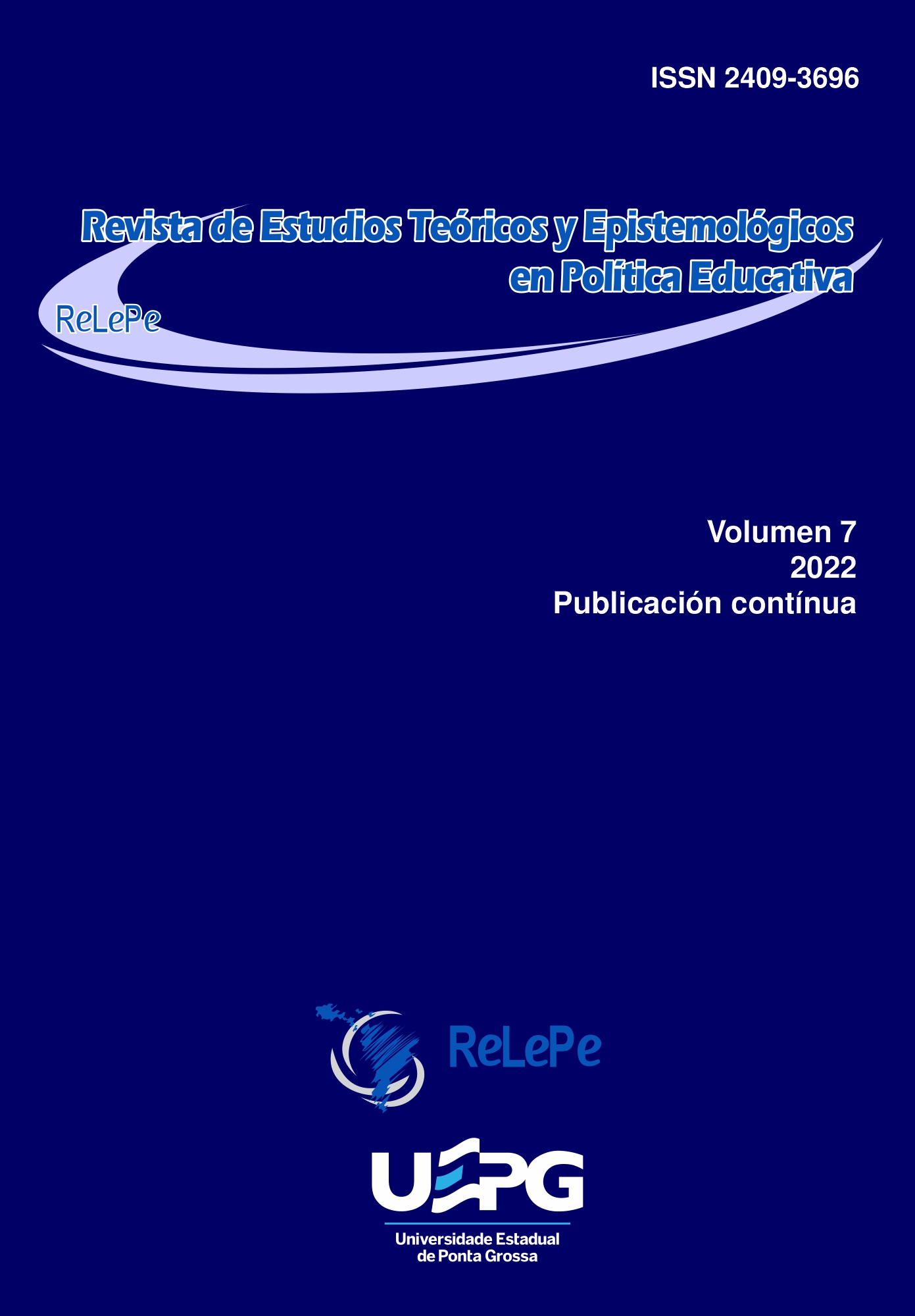The role of intermediary agents in the process of implementing an education policy: the CONSED High School Working Group and the reform by Law no. 13.415/2017 in Brazil
DOI:
https://doi.org/10.5212/retepe.v.7.20007.005Abstract
The purpose of this text is to discusses the role of intermediary structures of State bureaucracy in the process of implementing an education policy. For that, the perceptions of the members of the High School Working Group (WG) of the Council of State Secretaries of Education (Conselho de Secretários Estaduais de Educação – CONSED) about the implementation of the recent High School reform in Brazil (Law no. 13.415/2017) are analyzed, considering the controversies that surround it. It is documentary and empirical research. Data analysis occurred based on the content analysis procedure. The results indicate ambivalences and contradictions on the part of the subjects who were part of the WG at the time of data collection.
Keywords: Education policy. High School Reform. CONSED.
Downloads
Metrics
Downloads
Published
How to Cite
Issue
Section
License
1. Autores mantém os direitos autorais e concedem à revista o direito de primeira publicação, com o trabalho simultaneamente licenciado sob a Licença Creative Commons Atribuição 4.0 Internacional que permite o compartilhamentodo trabalho com reconhecimento da autoria e publicação inicial nesta revista.2. Autores têm autorização para assumir contratos adicionais separadamente, para distribuição não-exclusiva da versão do trabalho publicada nesta revista (ex.: publicar em repositório institucional ou como capítulo de livro), com reconhecimento de autoria e publicação inicial nesta revista.
3. Autores têm permissão e são estimulados a publicar e distribuir seu trabalho online (ex.: em repositórios institucionais ou na sua página pessoal) a qualquer ponto antes ou durante o processo editorial, já que isso pode gerar alterações produtivas, bem como aumentar o impacto e a citação do trabalho publicado (Veja O Efeito do Acesso Livre).
__________
Los autores que publican en esta revista están de acuerdo con los siguientes términos:
1. Los autores conservan los derechos de autor y garantizan a la revista el derecho de ser la primera publicación del trabajo al igual que licenciado bajo una licencia de Creative Commons Reconocimiento 4.0 Internacional que permite a otros compartir el trabajo con un reconocimiento de la autoría del trabajo y la publicación inicial en esta revista.
2. Los autores pueden establecer por separado acuerdos adicionales para la distribución no exclusiva de la versión de la obra publicada en la revista (por ejemplo, situarlo en un repositorio institucional o publicarlo en un libro), con un reconocimiento de su publicación inicial en esta revista.
3. Se permite y se anima a los autores a difundir sus trabajos electrónicamente (por ejemplo, en repositorios institucionales o en su propio sitio web) antes y durante el proceso de envío, ya que puede dar lugar a intercambios productivos, así como a una citación más temprana y mayor de los trabajos publicados (Véase The Effect of Open Access) (en inglés).
__________
If the article is accepted for publication, copyright of this article will be vested in the The Journal of Theoretical and Epistemological Studies on Education Policy.

Este obra está licenciado com uma Licença Creative Commons Atribuição 4.0 Internacional.

This work is licensed under a Creative Commons Attribution 4.0 International License.

Este obra está bajo una licencia de Creative Commons Reconocimiento 4.0 Internacional.





